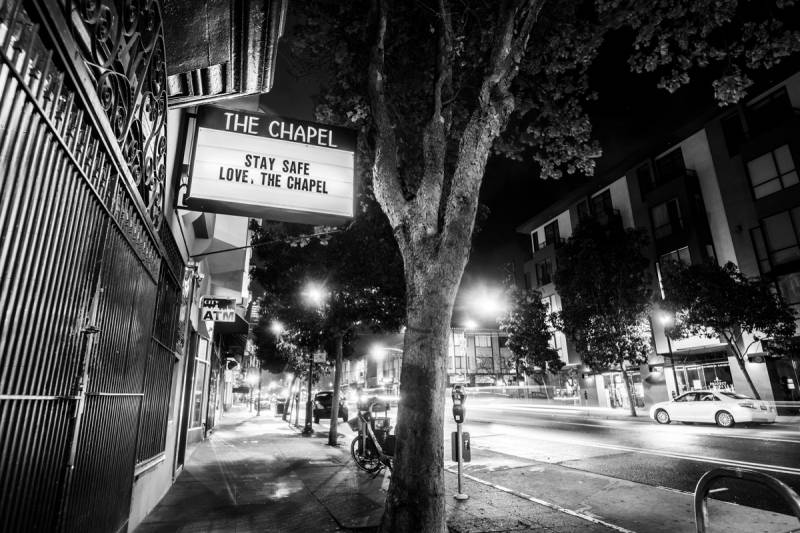Despite chalk circles drawn in the grass for social distancing, San Francisco’s Dolores Park is regularly packed with people, many of them without masks. Same with Golden Gate Park, Valencia Street and Ocean Beach.
With unpermitted gatherings happening in the city pretty much every weekend with nice weather, venue owners, musicians and other performing artists are becoming frustrated that their shows will be unable to resume—in an official capacity, anyway—until San Francisco reaches phase four of its reopening plan. It’s currently in phase two.
Several entertainment industry stakeholders have approached the San Francisco Entertainment Commission to argue that the city needs to create clear guidelines for outdoor music and performing arts events. Unpermitted gatherings are happening already anyway, they say, so why not allow artists and venues to make money from them legally, especially at a time when artists are out of work and many venues are at the brink of permanent closure?
“We’re the people who know better than anyone how to regulate an audience,” said Fred Barnes, general manager of The Chapel, at the Aug. 18 San Francisco Entertainment Commission meeting. Barnes co-founded the Independent Venue Alliance, which represents nearly 30 San Francisco music venues of all sizes, to collectively fundraise and lobby city government during the pandemic shutdown. “We have hundreds of people who work for us who we’d like to give some employment to, some artists we’d like to give employment to … and more than anything else, create an environment that would be safer than what is currently happening.”


